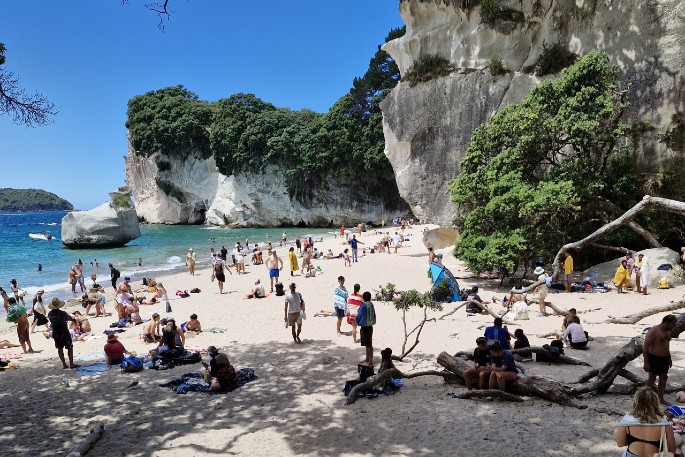This Content Is Only For Subscribers
The Department of Conservation (DOC) is moving ahead with plans for a foreign visitor fee at Cathedral Cove, but final details, including how visitors will be identified and how payments will be collected, are yet to be confirmed.
Legislation
DOC deputy director-general policy and regulatory services, Ruth Isaac, says the new fee will only take effect after legislation is passed.
“Further work is required to progress to implementation with legislation yet to be passed into law. DOC will work through the details including any required infrastructure, compliance, and final levy amounts. This includes how eligible visitors will be identified and how payments will be administered,” Ruth says.
She says that the Government intends to ensure the system is workable and fair. “The Government will seek to ensure the charge is reasonable and will consult with local communities and businesses on the specific details,” she says.
Site protection revenue
Funds collected from the levy will be kept strictly for local use. “The money raised will be ringfenced and as a priority reinvested at site to ensure the visitor experience is sustainable and the site is protected for future generations,” Ruth says.
She adds that spending will focus on maintaining the area’s unique natural environment and ensuring it can handle high visitor volumes. “For example, costs may include biodiversity protection, ongoing maintenance of tracks and toilets that service high volumes, ranger provision during peak periods and monitoring,” she says.
Local engagement
While some tourism operators had expected an earlier rollout, Ruth confirms there is still significant work to do before the roll out can begin. “New charges will not be in place until summer 2027 at the earliest,” she says.
DOC also plans to engage with those most affected. “The Government will consult with local communities and businesses on the specific details,” Ruth says, noting that discussions will include Coromandel tourism operators, local iwi, and the Hahei community — groups with a strong interest in protecting the site following track instability issues caused by Cyclone Gabrielle.



